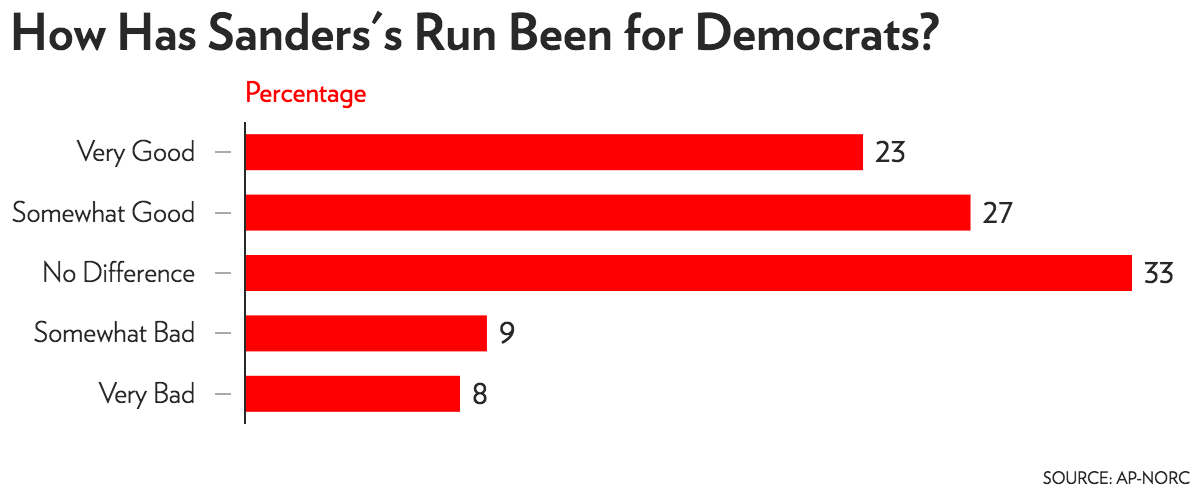For months experts have been trying to figure out "why Trump?" One answer I've seen a lot is, "Why not?" In a confusing election, it might be just as telling an answer as any.
Take these responses from a lengthy USA Today survey of Trump voters:
"I am intrigued by him, I represent the religious right, I am a born-again Christian and a conservative, and that is kind of how I vote, usually. He doesn't necessarily fit that bill, but the last one who did was Jimmy Carter, so him being the second-worst president, you know, behind our current one, maybe you don't always want, you know, what you think you want. So that is why I was kinda open to Donald Trump."
"Donald Trump may or may not…live up to his promises, but we know from past experience that most of the others, if not all of the others, will not."
"I would vote for, I hate to say it, but I would vote for Donald Trump. Not because I support him, I don't like how he affronts and denigrates people. I don't like that. … I understand the phenomenon from Donald Trump in what he is doing is actually poking his finger in the eyes of both parties and the ruling class and the elites."
There's plenty more where that came from.
But is it backed up by the data? It actually seems to be, to a certain extent. Earlier this year the University of Chicago's NORC, a legendary research center, and the Associated Press teamed up for a couple of polls, one on voter frustration and the other on political divisions in America. From the numbers you'd think Hillary Clinton would win easily, and that the Democrats would take back the Senate and the House. But the odds are fairly close; right now the most recent update from the Princeton Election Consortium currently shows a near tie in the electoral vote and the popular vote.
In the voter-frustration poll, respondents were asked "do you think Donald Trump running for the Republican nomination for President has been good for the Republican Party, bad for the Republican Party, or doesn't make much difference either way?"
They were quite clear.

Compare that to the same question asked about Bernie Sanders.

In the America-divided poll, respondents were asked "please tell me if you feel [this candidate's] election to the presidency would lead to the country being more united or more divided." Here's Trump:

And Clinton:

It's not a great result for Clinton, but the contrast is remarkable.
And it goes beyond Trump vs. Clinton. The voter-frustration poll also asked respondents about the two parties more generally, and the GOP came off worse down the line. For instance, respondents were asked "how open do you think the Republican party is to new ideas about dealing with the country's problems?"

Ditto for the Democratic party:

How about "open to candidates who are independent from the Washington establishment and the usual party politics"—a favored theme of Republican candidates?

The Democratic party doesn't do much better… but it does better nonetheless.

And the all-important "does the party care about me?" The Dems win that one, too.

For months, polls have shown that Donald Trump's favorability/unfavorability gap is fathomless. That's improved for him recently, but Real Clear Politics' average still has him at 38.5%/57.3%, compared with 41.9%/54.9% for Clinton. Yet he could win, and he is trending in the right direction. He's a very strange candidate: a protest vote against the Democratic party and his own party, and in that sense his strangeness is a feature, not a bug. And in a very strange year, it could be enough to win the Oval Office.



